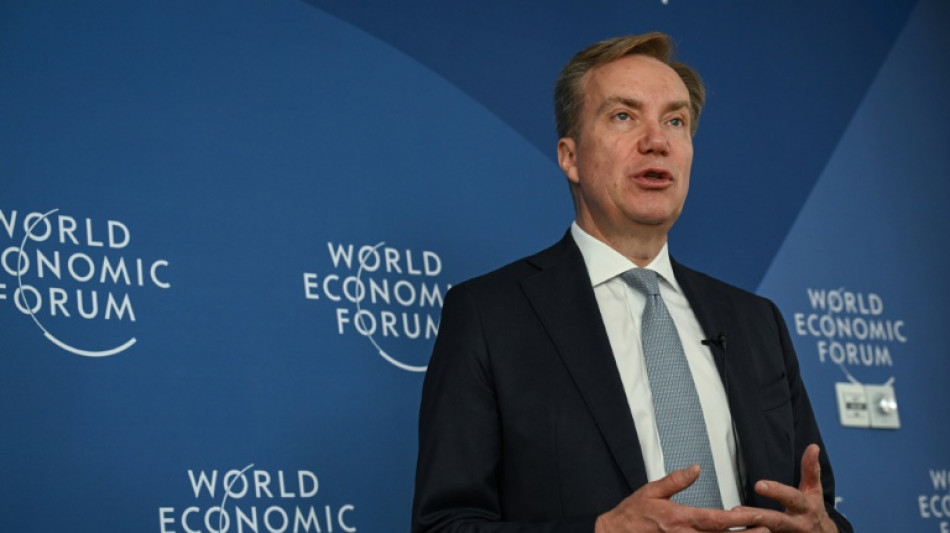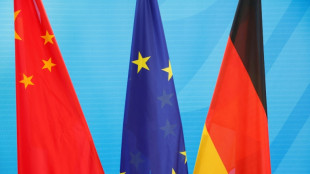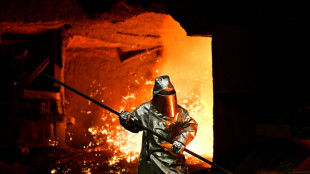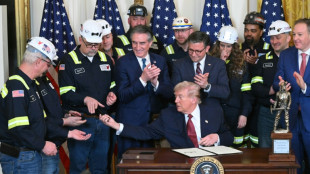
World facing 'most complex' situation in decades: WEF

The world is facing the "most complex" geopolitical situation seen in decades, the head of the World Economic Forum (WEF) told AFP Tuesday, warning that turmoil was "impacting global growth".
"It is the most complex geopolitical and geo-economic backdrop we've seen in decades," WEF President and CEO Borge Brende said ahead of a meeting of the multilateral forum in the northern Chinese city of Tianjin.
"If we are not able to revive growth again, we can unfortunately see a decade of lower growth," he warned.
Officials including Singaporean Prime Minister Lawrence Wong will attend this week's WEF meeting in the port city of Tianjin -- known colloquially as the "Summer Davos".
The meeting comes hard on the heels of the United States' involvement in the Iran-Israel conflict and follows months in which the global economy has been battered by a tariff war launched by US President Donald Trump.
This month, the World Bank cut its forecast for global growth this year from 2.7 percent to 2.3 percent, following a similar reduction by the International Monetary Fund.
Brende told AFP it was still too soon to predict the impact of Trump's swingeing tariffs.
It is "too early to say what these tariffs will end with because the negotiations are still ongoing", he said.
"I think the jury is still out, but the traditional globalisation we saw is now changed into a different system," he said.
"That is a new chapter... especially since trade was the engine of growth."
Brende also warned mounting conflict could have a "very negative impact" on global growth.
- 'China matters' -
The WEF gathering in Tianjin comes at an uncertain juncture for the Chinese economy, which has struggled under a years-long property sector crisis and sluggish domestic spending.
"China really does matter," Brende said, adding he expects the country to account for almost 30 percent of global growth this year.
"China is pivoting its economy more towards digital trade, towards services and also now opening up for increasing domestic consumption -- something that is important," Brende said.
Officials in Beijing have since late last year unveiled a string of aggressive measures including key rate cuts and cancellations of home purchasing restrictions.
But many economists remain sceptical that the Chinese economy can achieve the government's official growth target for this year of around five percent.
With the tumultuous trade war threatening shipments from the manufacturing powerhouse, Beijing is looking to emerging technologies such as artificial intelligence as potential sources of future growth.
"In the past, trade was the driver of growth, but you cannot exclude that new technologies including AI can... maybe replace the important role that trade had", Brende told AFP.
While trade will remain "very important", he said, disruptive technologies can provide the productivity boost needed to "avoid a decade of sluggish growth".
Attendees bustled around a cavernous conference hall in Tianjin on Tuesday ahead of talks with a lineup of speakers that includes former UK Prime Minister Tony Blair.
Chinese Premier Li Qiang is expected to deliver a keynote speech on Wednesday.
U.Lee--SFF

 London
London

 Manchester
Manchester
 Glasgow
Glasgow
 Dublin
Dublin
 Belfast
Belfast
 Washington
Washington
 Denver
Denver
 Atlanta
Atlanta
 Dallas
Dallas
 Houston Texas
Houston Texas
 New Orleans
New Orleans
 El Paso
El Paso
 Phoenix
Phoenix
 Los Angeles
Los Angeles



